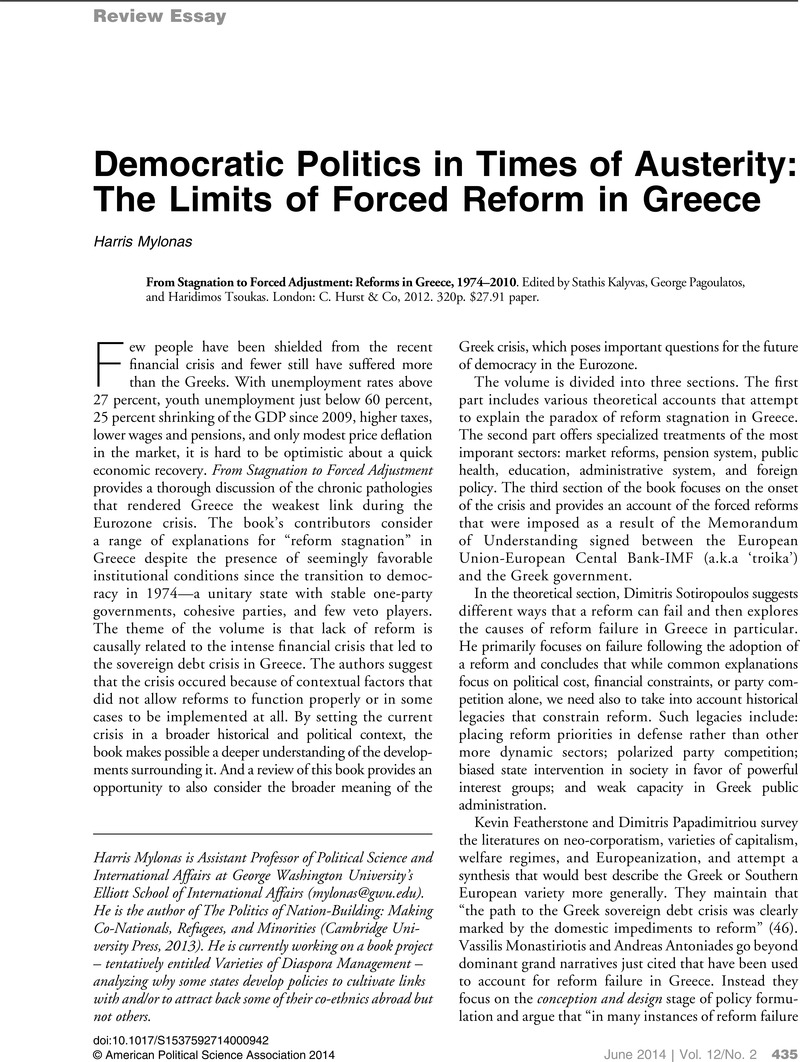Article contents
Democratic Politics in Times of Austerity: The Limits of Forced Reform in Greece
Published online by Cambridge University Press: 14 July 2014
Abstract

- Type
- Review Essays
- Information
- Copyright
- Copyright © American Political Science Association 2014
References
- 4
- Cited by


